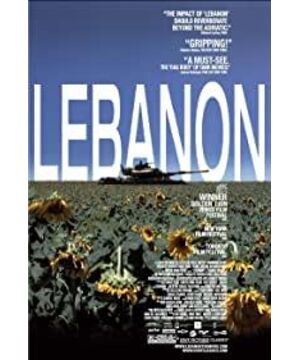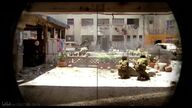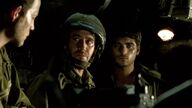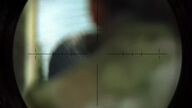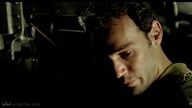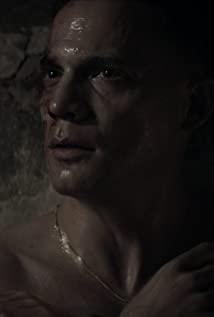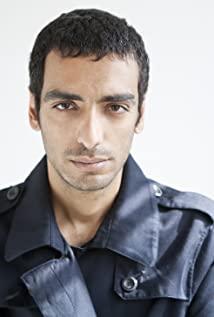■Title: "Lebanon"
■Director: Samuel Maoz
■Release date: October 15, 2009 (Israel)
■Reader: Europa
■Recommendation index: ★★★★☆☆
■One sentence review : None of them are heroes, and no one wants to be. The fierce struggle between survival instinct and human values is a horrific human tragedy.
(Spoiler Alert! The following content has a small part of the plot leak, which may affect the viewing)
It is hard to watch "Lebanon" not to remind people of "Waltzing with Bashir", the time and place events are all the 1982 Lebanon war. Both works are simulated reproductions of the director's personal experience. They are different from common war movies in that there is no charge and no heroism, and invariably adopt unconventional methods. When the protagonist of "Lebanon" recalls the warmth and sweetness of female breasts, I can't help but think of the sea dream in "Waltzing with Bashir," a soldier leaning on the body of a goddess. When panic and horror struck, the way they wept reminded me of Ang Lee. It is precisely because of the fragility of the human heart and the commonality of human nature that he, who claims to be a crybaby and is the chairman of the jury, recommends this film.
The animation form of "Waltzing with Bashir" avoids blood and reality, and can help the audience eliminate psychological conflicts and win goodwill. "Lebanon" adopts a more extreme approach. Except for the first and last two shots, all other scenes are set inside a closed tank. Their communication with the outside world is through sight and hearing (speech glasses and radio), and then from time to time there are people who "fall off" and create some accidents. However, it is difficult for "Lebanon" to get the general praise as "Waltz with Bashir", this is not because of the time sequence and the conflict of themes. Technological determination does not mean a higher level of thinking. The novelty and freshness of the current halfway process has disappeared, and the film has fallen into the old-fashioned preaching, refutation and awakening, and there is no continuous surprise.
The film really knocked me down in the first few minutes: the figures reflected in the oily puddles, from clear to indistinguishable, were dirty and visible; the volatilization and mixing of various body fluids, including sweat, tears and urine, were repeatedly emphasized; In the closed tank, the light is insufficient, the air is stuffy, and the atmosphere is tense. It is conceivable that several people are crammed into a small space, so the film is full of close-ups and close-ups. Even if it's not a live shot, the difficulty can be imagined. People's activities are greatly restricted, and cameras are also interspersed. The subjective perspective seen from the tank is real and direct, just like the first perspective game, with a strong sense of presence. It should be noted that the subjective perspective of the machine gunner is the incarnation of the director himself. The movie lacks the perspective of the driver and the captain. When escaping behind, the outside situation is simply omitted. It is a dark mess, shaking violently. skip.
A field full of sunflowers, gusts of wind blowing, swaying and rolling, as if there are enemy soldiers and horses hidden below, and there is murder in calm. After that, the story broadened the imagination of the film's opening. The young soldiers fell into the killing line, and it was difficult to distinguish whether the cunning enemies or innocent civilians appeared in the front. Don't look at the steel machine's invulnerable appearance, "Lebanon" will tell us that the tank is actually very fragile, and the people inside are even more vulnerable. The fallen soldiers, the crippled chicken farmer, the burning innocent woman, the appearance of these characters is more shocking than each other. The director also cut the camera to a donkey, which was going through terrifying pain before it died, with big tears falling from its clear eyes. Portraits of the Virgin of Mercy, beautiful world views, they are too far from this place of death.
Not to mention war creatures, when you are in it, you have no choice but to escape. Witnessing death and then fearing it, one must save one's life after all. The soldiers in the tank have weak legs and passive timidity. They are brought into the war and want to escape but cannot. Life and death are too cruel, and the people in the tank will clash over a simple order. The iron wrap seems to isolate the tank from the outside, but confined spaces can also cause fear. Once ambushed, they have little room to escape, not to mention this tank is the center of the marching movement. The cooperation of the ground team made the tank almost in danger. When the tank left alone and parked in an Arab residential area in isolation, "Lebanon" created the embattled modern battlefield. The communication signal was interrupted, the enemy was hiding in the shadows, and the Arabs were brisk songs. It seems to be a horrific mourning for Israeli soldiers.
The problem with "Lebanon" is that it becomes discouraged after too much talk. The director wants to make the characters in the tank have distinct personalities, but he doesn't know that it is easy to fall into stereotypes. For example, there must be contrast, contrast, and foreshadowing. The driver who asked the officer to report the safety of his mother, the driver who emphasized his identity many times and seemed to be fearless, it is not difficult to guess their later personality changes. Even if he is not a deserter, he is not a hero. In the face of an inhuman war that is confused and unclear, no matter how the director wants to make a difference in the form, once he returns to the qualitative motif, he cannot be exempted from the custom - this is also a lot. One of the main reasons people shy away from watching Middle Eastern subjects. 【Beijing Youth Daily】
View more about Lebanon reviews


